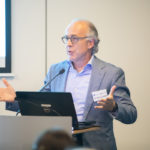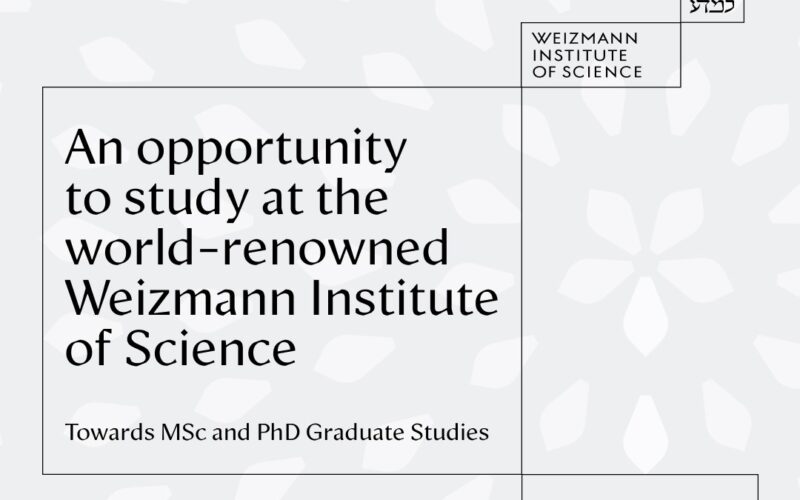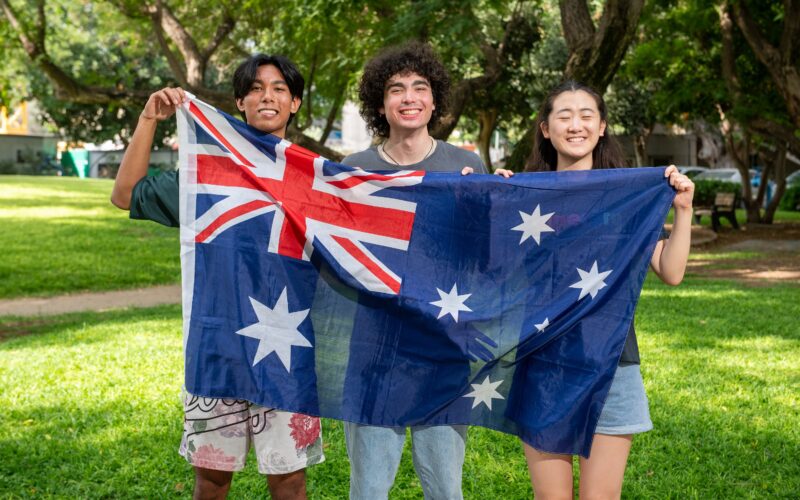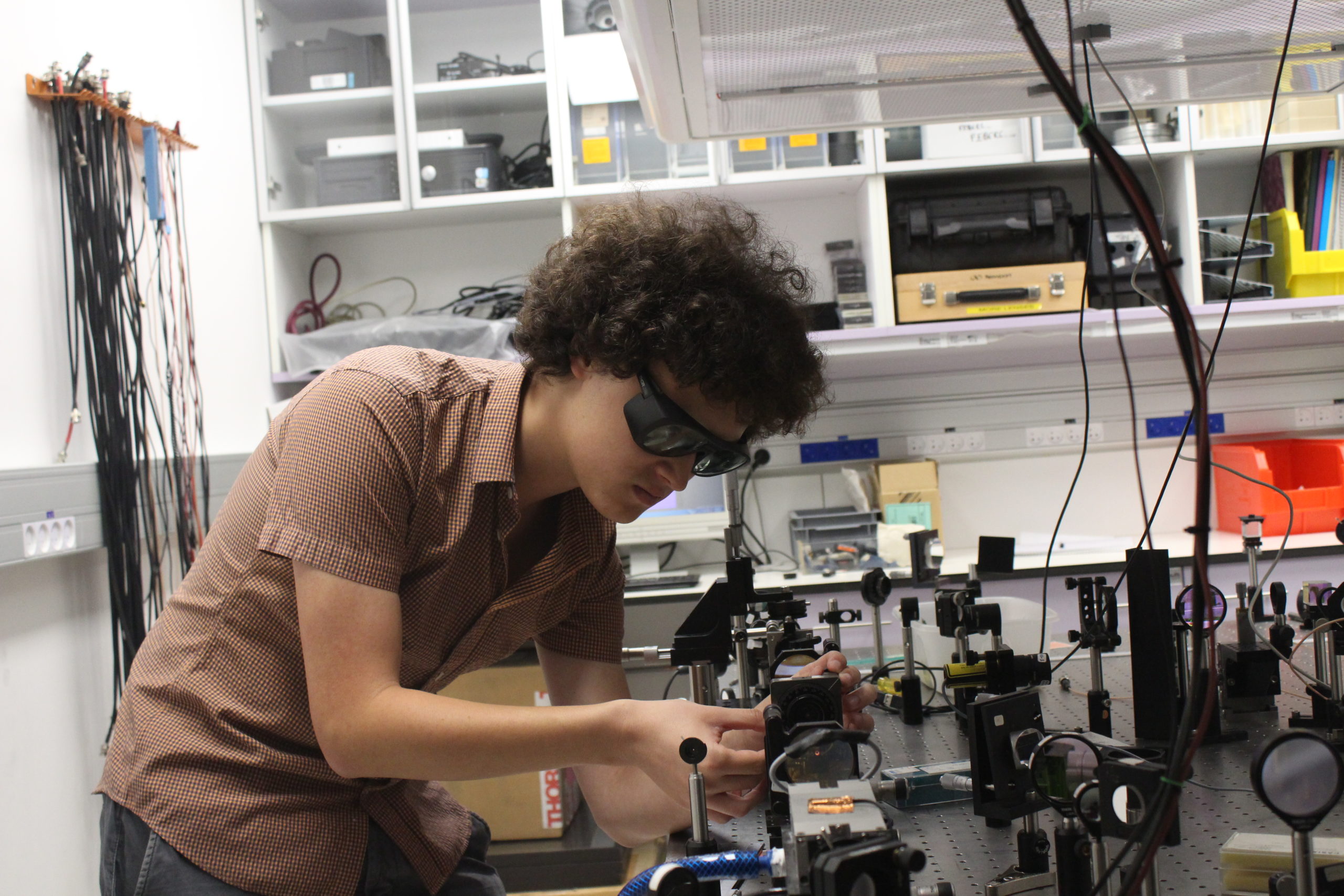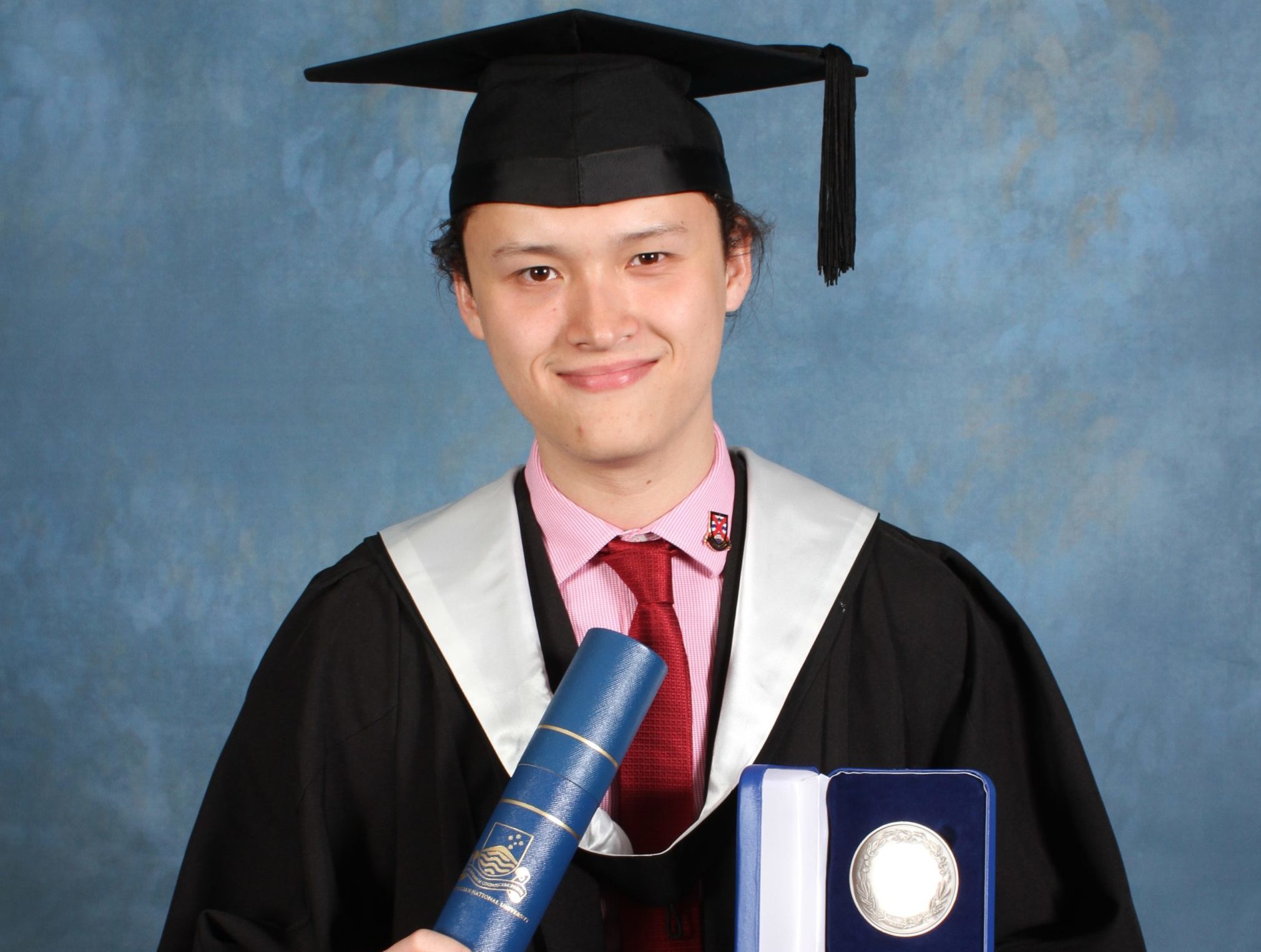
January 8, 2020
Two-time Weizmann scholar Matt Goh is heading to the University of Oxford after recently graduating with First Class Honours in theoretical physics from the Australian National University (ANU).
But not only did Matt graduate, he received the University Medal and was awarded a Rhodes Scholarship to undertake a DPhil in Physics at Oxford.
His Honours research is on designing, modelling and simulating a new method to control ultracold fermionic atoms, for quantum simulation applications. Matt investigated the viability of feedback control methods as an alternative cooling method to achieve the staggeringly cold nanokelvin temperatures for quantum degeneracy. In doing so, he took the first steps towards supplanting the Nobel Prize-winning evaporative techniques of Wieman, Ketterle and Cornell, inching towards the next generation of cold-atom quantum technologies.
This is a massive achievement for Matt. He noted that his two summer schools at Weizmann (the 2016 International Summer Science Institute (ISSI) and the 2018 Kupcinet-Getz International Summer School) were a great inspiration:
“Research is at the core of what I do, and there are surprisingly few chances to develop core research skills in a standard undergraduate science degree. The opportunity to join research groups at Weizmann on two separate occasions contributed enormously to my personal growth as a young scientist, and definitely pushed me along the path that has led me to Oxford.”
Matt’s first trip to Israel for the ISSI encouraged him to apply for the 2018 Kupcinet-Getz program at Weizmann where he did two months of research under the supervision of Professor Nir Davidson at the Department of Complex Systems. This led to results being submitted for Matt’s first scientific publication (arXiv preprint), detailing an investigation into phase-locking of laser arrays using saturable absorbers. Matt described the applications of his research, and the implications for his own development:
“For scientific and industrial applications of lasers, the coherence and phase relations are of paramount importance. But the process by which they emerge is also of fundamental scientific interest, and we investigated their application as an analogue solver for hard computational problems.”
“Most notably for me, this is the first time I created and published new scientific knowledge. Its the moment when I stopped thinking of myself as a student and started thinking of myself as a scientist – after making my first contribution, however small, to the body of knowledge possessed by the scientific community.”
During his physics studies at ANU Matt certainly got a chance to travel. As well as his two trips to Israel, he spent a semester at the University of Copenhagen and a summer exchange at the University of Cambridge in 2017, in addition to summer internships at the University of Sydney and University of Adelaide.
Beyond research and academics, Matt keenly pursues other interests. Working as a casual member of teaching staff at ANU since 2017, he developed a passion for education as a tool for scientific impact and social justice. Living in the residential college, Bruce Hall, Matt was a mentor there, in addition to serving as Treasurer of the ANU Physics Society (PhySoc) and Vice-President of the ANU Solar Car Association (ASCA). Further to science and education, Matt has pursued interests in theatre and the arts.
In light of these achievements, Matt has been awarded the famous Rhodes Scholarship. This came following a demanding selection process spanning four months, two dinners, two interviews, and five letters of reference, one of which was provided by Weizmann’s Professor Davidson. The scholarship provides full support for any postgraduate degree at Oxford, and Matt intends to use it to fund a Doctor of Philosophy (DPhil) in Physics.
“Oxford is undoubtedly the best place for me to take my next steps as a young scientist, and I couldn’t be more thrilled”, said Matt.
“I just want to thank all at Weizmann Australia and the Weizmann Institute of Science for providing me such influential opportunities in my life. Having multiple opportunities to conduct research and represent Australia in an international environment was a crucial part of the development that led me here,” he said.
Established in 1902, the Rhodes Scholarship is the world’s oldest and most prestigious international scholarship. Notable alumni include heads of state such as United States President Bill Clinton, Australian Prime Ministers Bob Hawke, Tony Abbott and Malcolm Turnbull; Nobel Laureates Howard Florey, John Eccles, Andrew Michael Spence; and other notable scientists: Edwin Hubble, Brian Greene, Leonard Huxley. More details are available on the Trust website.
Weizmann Australia and all at the Weizmann Institute of Science congratulate Matt on this incredible achievement. We will no doubt be hearing more about him well into the future.
Further details on Matt’s achievements can be found on his Rhodes Trust bio.
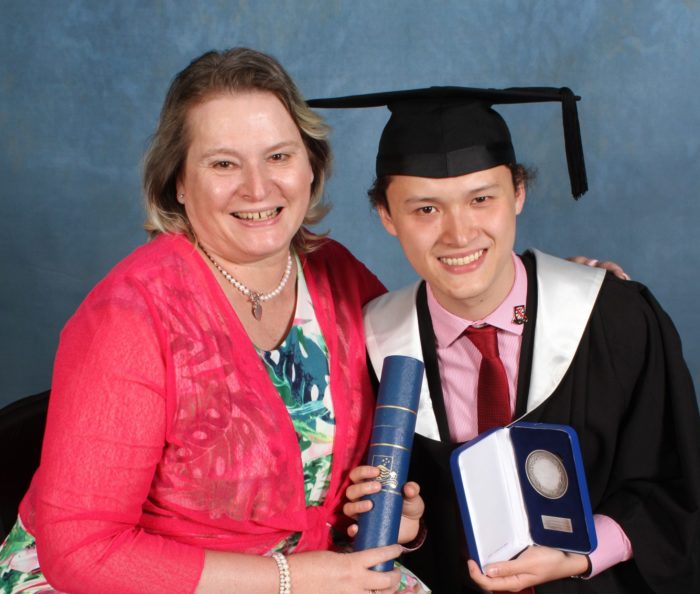
Matt and his mother at his graduation ceremony
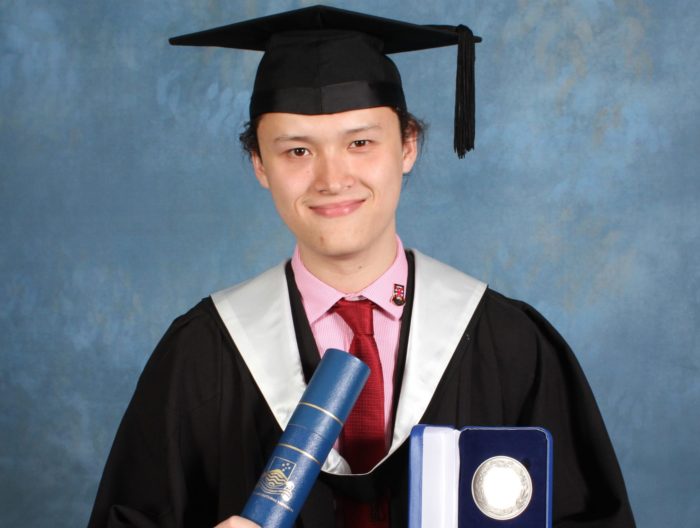
Matt at his graduation ceremony
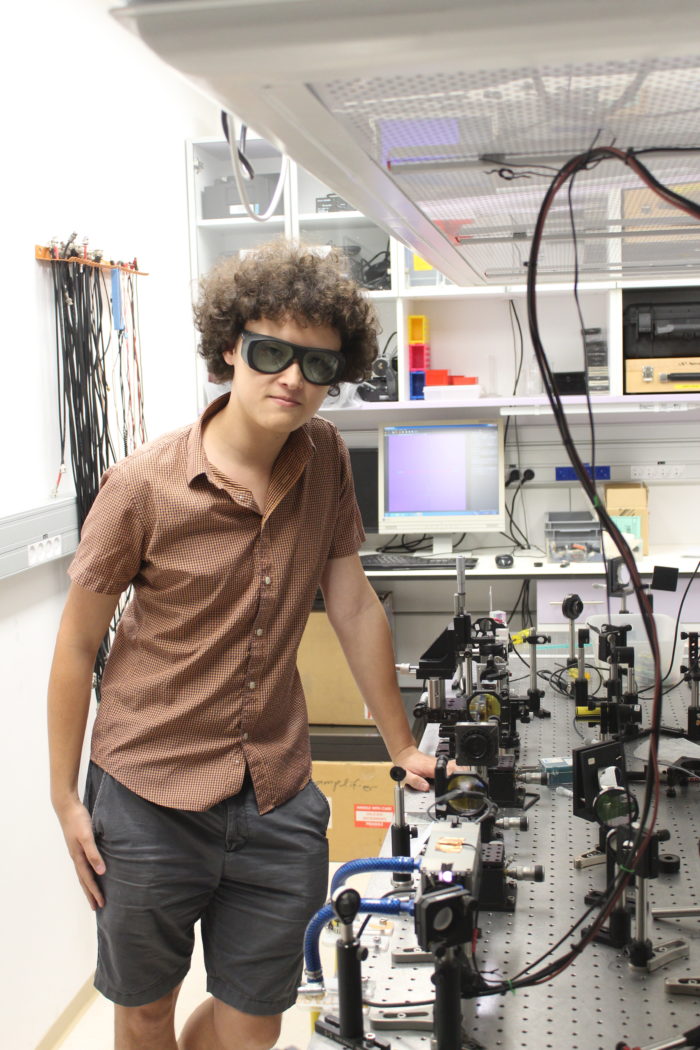
2. Matt in the Davidson Laser Physics Lab, working on his phase-locking experiment during the 2018 Kupcinet-Getz program
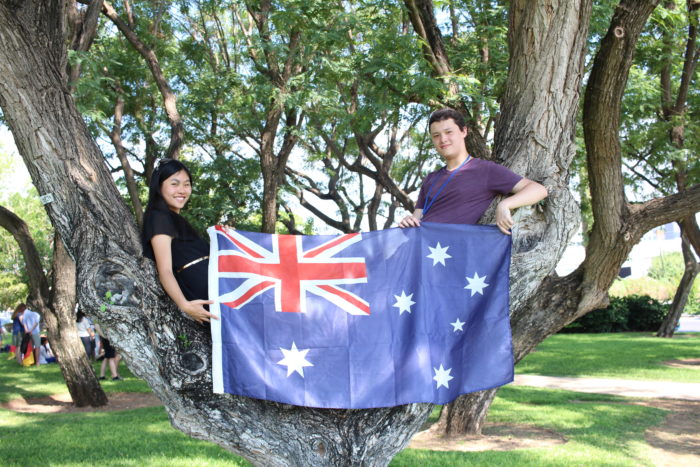
Matt and fellow Australian scholar Cherry Zheng at the 2016 International Summer Science Institute.
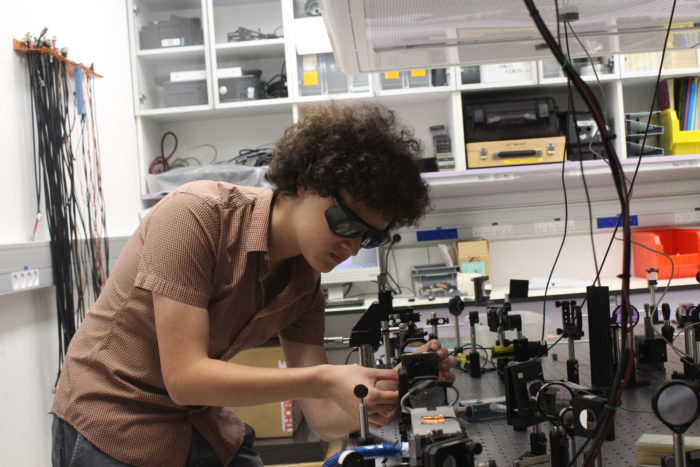
2. Matt in the Davidson Laser Physics Lab, working on his phase-locking experiment during the 2018 Kupcinet-Getz program
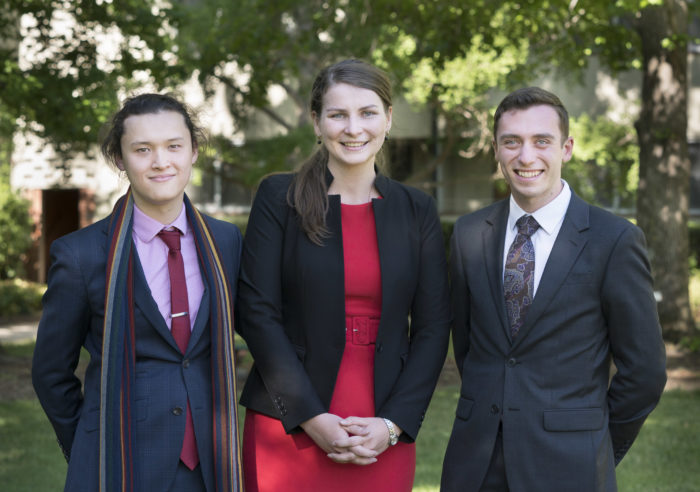
Matthew Goh, Sophie Ryan, Marcus Dahl, Rhodes Scholarships Australia

